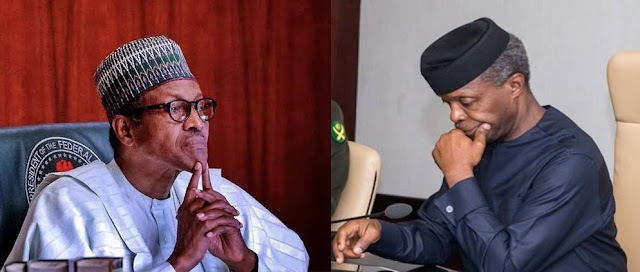In a bid to rest the ghost of the annulled June 12, 1993 presidential election, President Muhammadu Buhari declared June 12, Democracy Day. The then Military Head of State, General Ibrahim Babangida had annulled the election which the late Chief M. K. O. Abiola was said to have won. This move was greeted with national crisis and unrest.
The gains in the successful struggle and political enterprise were almost completely obliterated by the annulment of the June 12, 1993 presidential election, won by the late business mogul and philanthropist, Chief Moshhod Kashimawo Abiola. Nigeria soon turned into a pariah state, with the rest of the world ostracising the beacon of the Black man; treating her with disdain, scorn and contempt. It was all because of the inordinately ambition of a powerful clique within the military oligarchy, in collaboration with a rapacious few among the civilian elite neck-deep in pervert values. A global outrage over the cancellation of the election and mandate expressly given to Abiola marked the beginning of another intense and prolonged struggle against the Establishment that had perfected the art of invidious manipulation, chicanery and machination; an establishment that saw every dissenting voice as persecutory and must be crushed with maximum force.
If you were a baby in 1993, here are12 things you probably did not know about June 12.
1. Abiola was a product of annulled party primary
It might interest you to know that the first primary election conducted by Abiola’s party – the Social Democratic Party (SDP) – was annulled. Shehu Musa Yar’adua won the primary election, but the military banned all those who contested. This paved way for Abiola to come on board in the next primary in which he narrowly won Babagana Kingibe and Atku Abubakar.
2. June election was considered the freest and fairest election
National and International observers declared the election the freest and fairest election in Nigeria’s history. It was reported that Abiola won his rival Bashir Tofa of the National Republican Convention (NRC) in his home State, Kano.
3. Abiola’s campaign slogans appealed to most Nigerians
Hope 93’ was Abiola’s campaign slogan. He had slogans which reflected the dire condition of most Nigerians. They included: “Farewell to Poverty” “At last! Our rays of Hope” and the “Burden of Schooling”. Being a renowned philanthropist, people had hope that he would liberate Nigerians out of poverty once he assumed the presidency.
4. Reasons Babangida gave for annulling the election
General Babangida reeled out several reasons for annulling the election conducted by National Electoral Commission (NEC) chairman, Humphrey Nwosu. In the decree which annulled the election, he emphasized challenges with the judiciary, flawed legal proceedings and the need for the courts to settle allegations of corruption against the presidential candidates, including vote-rigging on the day of election, as major reasons for his actions.
5. Shonekan was made head of interim government
After the annulment, Babanginda handed over power to a lawyer and businessman, Chief Ernest Shonekan on August 26, 1993. Shonekan was on January 2, 1993 made the head of Transitional Council and Head of Government under the Babangida government. This was meant to be the final phase leading to a scheduled hand over to an elected democratic leader.
6. Abacha’s coup removed Shonekan
Though Babangida handed over power to Shonekan, the government was still under the subtle control of the military. This came to light when General Sani Abacha, in a palace coup, on November 17, 1993 seized power from Shonekan.
7. Abiola declared himself President
Having come to the realization that Abacha was not willing to hand power over to him, in 1994, in Epetedo area of Lagos Island, Abiola declared himself President of Nigeria.
8. Abacha arrested Abiola
The Epetedo declaration made Abacha to declare Abiola wanted. He accused Abiola of treason and reportedly sent 200 police vehicles to bring him into custody.
9. And Abiola’s wife was assassinated
Abiola’s wife, Alhaja Kudirat Abiola, due to her brazen continued agitation for her husband’s release from custody and restoration of his mandate, was assassinated in Lagos, in 1996.
10. Abiola refused all conditions for his release
It was alleged that the military gave Abiola juicy conditions for him to be released. They allegedly asked him to renounce his mandate and get a refund for all his extensive election expenses.
11. International community called for his release
The international community and human rights activists all over the world called for his release during his four-year incarceration. It was reported that Archbishop Desmond Tutu and Pope John Paul II also put in efforts for his release.
12. Abiola died under unverified circumstance
After Abacha’s death on June 8, 1998, Abiola died on July 7 same year under suspicious circumstances. The official autopsy of his death that was made public noted that he died of natural causes. However, the autopsy conducted by international coroners was not disclosed.
––––––––––––––––
Credit: John Chukwu (https://www.ripplesnigeria.com/for-those-born-after-june-12-1993-here-are-12-things-you-probably-dont-know/)





















Comments
Post a Comment